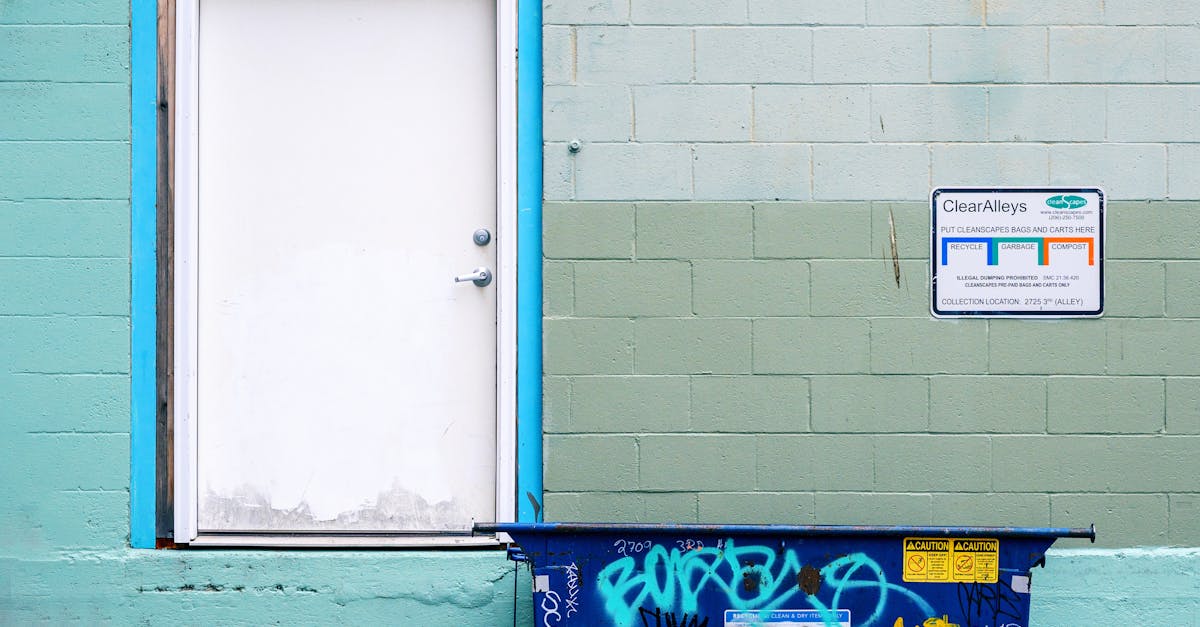How much does the smallest dumpster cost?

Benefits of Renting a Small Dumpster
Renting a small dumpster offers several advantages for managing waste effectively. It simplifies the disposal process, making it easier to sort and discard unwanted materials during various projects, such as home renovations or yard clean-ups. Smaller dumpsters are often more accessible, fitting into tight spaces that larger containers cannot accommodate. This convenience allows homeowners and contractors to maintain a tidy work area, reducing clutter and enhancing safety.
In addition to practicality, small dumpsters can be more cost-effective for smaller projects. Many rental companies offer competitive pricing for these units, which can help individuals stick to their budgets. By opting for a smaller size, users pay only for the space they actually need, avoiding unnecessary expenses. This economical approach helps ensure that projects remain within budget while still promoting a cleaner and more organized environment.
Efficiency and Convenience for Projects
Renting a small dumpster streamlines the waste disposal process for various projects, whether they are home renovations or yard clean-ups. Its compact size allows for easier maneuverability, making it simple to place in tight spaces. When multiple tasks require attention, having a dedicated container on-site minimizes trips to the landfill, ultimately saving time and effort.
Convenience is a significant factor when choosing a dumpster for a project. With a range of sizes available, selecting a small dumpster ensures that it fits within the parameters of the job without consuming excessive space. This accessibility allows for a more organized worksite, enhancing productivity as debris is quickly and efficiently removed from the area.
How to Choose the Right Dumpster
Selecting the appropriate dumpster starts with a clear understanding of your project's requirements. Consider the amount and type of waste you will generate. Different projects produce varying debris, from heavy construction materials to lighter household junk. An accurate assessment of your needs ensures you choose a dumpster that can accommodate the volume without extra costs from overloading or needing a second rental.
Space availability at your location is another crucial factor. Measure the area where the dumpster will be placed, ensuring there’s enough room for the truck to drop it off and pick it up. Narrow pathways or limited access can complicate delivery and collection. Additionally, check any regulations regarding dumpster placement in your area, as local rules may dictate sizes or require permits.
Assessing Project Needs and Space
Determining the size of the dumpster required for a project hinges on various factors, including the volume and weight of the materials to be disposed of. Assess any specific types of waste that will be included in the load. Some materials may require special handling, which can further influence the size and type of dumpster needed. A clear understanding of the project scope will facilitate a more effective decision regarding dumpster size.
Additionally, the available space at the project site is crucial for placement. Consider how the dumpster's location will impact accessibility for both loading and removal. Restricted areas may necessitate a smaller dumpster, while more spacious sites might accommodate larger options. Taking these elements into account ensures both the efficiency of the project and compliance with any local regulations.
Tips for CostEffective Rental
Evaluating your project's needs before renting a dumpster can significantly impact overall costs. Consider the volume of waste generated and choose a dumpster size that best accommodates that amount. Oversized dumpsters can lead to unnecessary expenses, while undersized options may require multiple rentals, ultimately driving up costs. Make a detailed inventory of the materials you plan to dispose of to ensure you select the most appropriate size while keeping expenses in check.
To prevent overcharges, it's essential to fill the dumpster efficiently. Place larger items at the bottom for stability and ensure smaller debris fills gaps around them. Avoid overfilling to stay within weight limits, as many rental companies impose additional fees for exceeded weights. Being mindful of the type of waste you're disposing of can also save costs, as some materials may incur extra charges or require specialized disposal methods.
Maximizing Space to Avoid Overcharges
Efficiently utilizing space in a small dumpster can help minimize rental costs significantly. Begin by sorting your waste into categories, ensuring that heavier materials are placed at the bottom while lighter items fill in the gaps. By stacking items securely and organizing them thoughtfully, you can make full use of the available volume, reducing the likelihood of needing a larger dumpster.
It's also important to be mindful of the weight limit associated with your rental. Each dumpster has a maximum weight capacity, and exceeding this limit can lead to additional fees. Compacting materials where possible can further maximize space. Consider breaking down large items or flattening cardboard to optimize how much you can fit in the dumpster while avoiding extra charges.
FAQS
What is the average cost of renting the smallest dumpster?
The average cost for renting the smallest dumpster typically ranges from $150 to $300, depending on factors such as location and rental duration.
Are there additional fees associated with renting a small dumpster?
Yes, additional fees may apply, including delivery and pickup charges, weight overages, and landfill fees, which can vary by provider.
How long can I keep a small dumpster before returning it?
Most rental companies allow you to keep a small dumpster for 7 to 14 days, but you can often arrange for an extension if needed, usually for an additional fee.
What types of projects are suitable for a small dumpster rental?
Small dumpsters are ideal for home renovation projects, yard clean-ups, garage clean-outs, and small construction jobs where space and debris volume are limited.
Can I place a small dumpster on the street?
Placing a dumpster on the street may require a permit, depending on local regulations. It's advisable to check with your city or rental company for specific requirements.